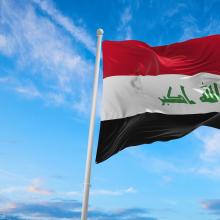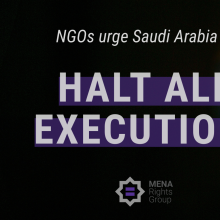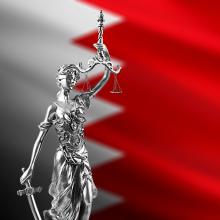April 16, 2019

MENA Rights Group is concerned over the possible upcoming adoption by Tunisia's Assembly of the Representatives of the People of a draft law on the state of emergency, which would have a detrimental impact on fundamental rights and freedoms in the country.
If adopted, the draft law would expand the executive’s already broad powers, enabling it to prohibit demonstrations, place individuals under house arrest, and suspend associations and organisations in the absence of adequate judicial control.
The proposed text would replace Decree No. 78-50, on the basis of which a state of emergency has been imposed continuously since November 2015 following a suicide bombing in Tunis. However, the draft law fails to address the numerous shortcomings of this piece of legislation.
The text is currently being examined by the parliament’s Committee on Rights, Freedoms and External Relations before a possible vote, the date of which is yet to be determined. At the same time, on April 5, the president decided to renew the state of emergency for an additional month.
Noting that the law would constitute a step backwards for the protection of human rights in the country, on March 14, 2019, MENA Rights Group appealed to the UN Special Rapporteur on the promotion and protection of human rights and fundamental freedoms while countering terrorism.
Providing an analysis of the draft law, MENA Rights Group requested that the Special Rapporteur call on the Tunisian authorities to replace Decree No. 78-50 with legislation that complies with international human rights standards.
Why is the draft law problematic?
The grounds for declaring a state of emergency under the draft law are broader than what is normally prescribed under international law. Article 4 of the International Covenant on Civil and Political Rights (ICCPR) provides that a state of emergency is permitted only when a situation “threatens the life of the nation”, and that the measures taken must be consistent with states’ obligations under international law. We fear that the situations outlined in the draft law do not meet the necessary threshold required to activate the state of emergency.
The draft law is also problematic in terms of democratic control, as the president may declare a state of emergency for a six-month period without having to seek parliamentary approval. Additionally, although the state of emergency can only be renewed for a period of three months, the bill does not specify how many times it can be renewed.
Furthermore, the draft law extends the list of exceptional measures that are currently applied under Decree No. 78-50, handing the authorities wide discretionary powers to derogate from their human rights obligations. For instance, governors and the Ministry of Interior are empowered to prohibit any strike or demonstration deemed to threaten public order, place anyone whose “activities are deemed to endanger security” under house arrest, and suspend associations on mere suspicions of participation in harmful acts, all in the absence of adequate judicial control.
Continuous renewal of the state of emergency since 2015
The loopholes contained in the draft law are a cause of concern considering the government’s abusive use of its emergency powers since the declaration of the state of emergency in November 2015.
Following a country visit conducted in early 2017, the Special Rapporteur affirmed that “the emergency powers granted in presidential decree No. 78-50 to law enforcement institutions impinges substantially on the full enjoyment of international human rights norms, including those accepted by Tunisia, in particular the right to freedom of movement, the right to leave one’s country and the right to privacy, and also the non-derogable right to challenge such restrictions in court, the prohibition against arbitrary deprivation of liberty and due process guarantees.”
The Special Rapporteur also noted that the “routine extension of the state of emergency […] amounts to a permanent state of emergency, which is prohibited under international law.”
Opposition to the draft bill
Several local and international civil society organisations have been vocal against the proposed text. Members of the Alliance pour la Sécurité et les Libertés (Alliance for security and liberties), a collation of several human rights NGOs, recommended that the president withdraw the draft law.
Similarly, on April 5, Article 19 Middle East and North Africa, Amnesty International and MENA Rights Group sent a joint letter to the members of the Assembly of the Representatives of the People asking them to reform the legal framework governing the state of emergency by adopting an approach that respects the fundamental rights protected by the Tunisian constitution as well as international conventions ratified by Tunisia.






